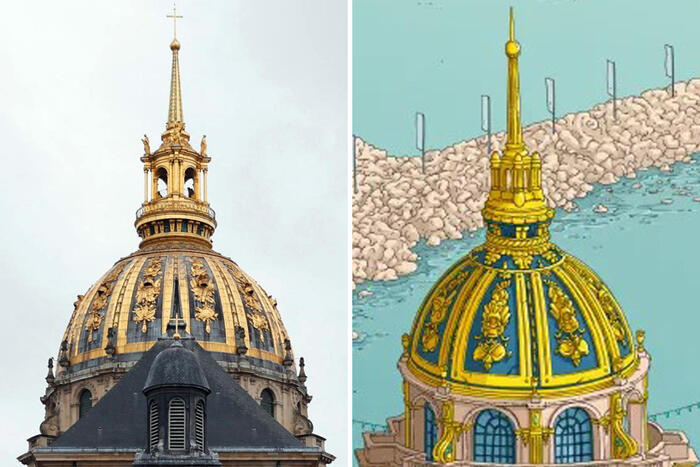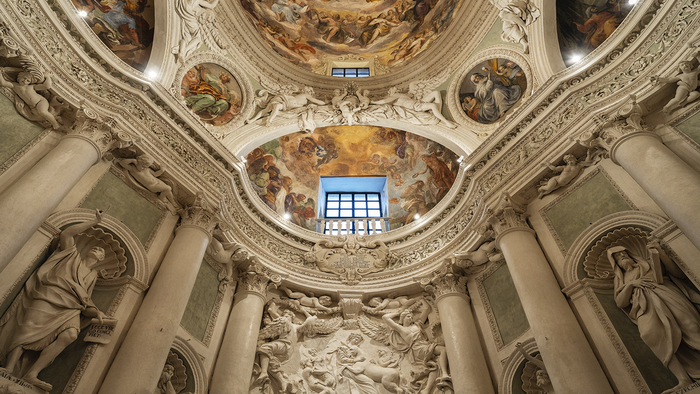Who rules in the Episcopal Conference?
Why don't the bishops accept the wishes of Pope Francis and agree to open an independent investigation into the abuses perpetrated by ecclesiastics?
Are the differences in criteria so deep that the body that coordinates the hierarchy of Catholicism has its hands tied?
There are answers for all tastes, but the main one prevails: the Spanish Episcopal Conference (CEE) is not an executive body.
But it does have coordinating functions.
It approves documents, pastoral instructions or notes in assembly, but the bishops execute them, or not, with great freedom.
This Thursday the executive commission of the CEE meets, with the mission of organizing the meeting of its permanent commission (March 8 and 9), which in turn will set the agenda of the general assembly (known as the Spring Assembly; there is another in autumn), scheduled for the week of April 25 to 29.
The executive is made up of nine prelates, including President Juan José Omella and Vice President Carlos Osoro, who will not attend because he is in Rome with the Pope.
They meet without an agenda, but it is assumed that they will address the issue of sexual abuse, where great differences between them will surface.
All those present are also in the Permanent Commission, in addition to 18 other prelates, including the rest of the active cardinals and all the archbishops.
In reality, the episcopal conferences, 113 throughout the world, are a creation of the Second Vatican Council, at the end of 1965, with scarce powers, even diminishing.
It is confirmed in the last reform of the Code of Canon Law, made in 1983 by John Paul II.
Canon 455 says: “The Episcopal Conference can issue general decrees only in cases where common law prescribes it or when a special mandate from the Apostolic See [the Vatican] so establishes it.
In cases in which neither universal law nor a special mandate from the Holy See has granted the Episcopal Conference the power to issue decrees,
The bishops act as pontiffs in their dioceses, with the same paraphernalia and the same ceremonies as the Roman Pontiff.
Not even the Pope rules over them, although he does have, for centuries, the power to appoint them.
This has nuances in Spain: during the dictatorship, it was Franco who selected a list of candidates, which forced the Pope;
Since 1979, the Government has had the right to inspect the candidates, although without the power to veto it, and the King maintains the prerogative to elect the military vicar general.
Today there are a majority of bishops who seem to curse the announced public investigation of sexual abuse perpetrated by ecclesiastics.
However, there are very conflicting sensitivities and positions, as in the rest of the pastoral or political activities.
More information
The control room of the Church against sexual abuse
There are more and more weighty voices in the Spanish Catholic Church that speak out in favor of public scrutiny of pedophilia, those who, in line with the mandate of Pope Francis ("zero tolerance" order), would like to leave behind a problem that blocks or hinders any other evangelical initiative.
“That there are no complaints does not mean that there are no cases.
The cases of the past are cases of the present”, expressed this Monday in a video the Archdiocese of Madrid, one of the most important bishoprics and directed by Cardinal Osoro.
This position contrasts with that of the EEC.
The spokesman and general secretary of the institution, Luis Argüello, said that in a commission in Congress "more political issues will influence" than "the real interest of the victims."
“A commission of the Congress of Deputies is not the appropriate environment to carry out an investigation of this type,” he opined.
In a line similar to that of Osoro, other prelates have expressed themselves, such as Burgos or Zamora, in favor of the creation of parliamentary or independent commissions to investigate what happened.
The Bishop of the Canary Islands believes that "all cases of pederasty must be investigated" and that the victims must be "helped and repaired".
"The proposal for a parliamentary commission on abuses in the Church, whether carried out directly in Congress or through the Ombudsman, on the part of the Church, I have to tell you that it is well received," the Archbishop of Santiago de Compostela.
The Archbishop of Santiago, Julián Barrio, crosses the Holy Door of the cathedral of that city, in 2015.Óscar Corral
The idea that nothing is more like a bishop than another bishop does not work for Spain, no matter how hard the popes try to unify criteria to select them.
Their ambassadors in each country, who have the name of apostolic nuncios, practically have no other function than to search among the priests in search of the profiles demanded from Rome.
Many dioceses often do not have a bishop (in Spain, five at the end of last year) as a result of these difficulties.
They do resemble each other, in general, in their advanced age.
The Spanish Episcopal Conference now has 112 prelates, of which 34 are emeritus and the majority are over 80 years of age (2 cardinals, 9 archbishops, 21 diocesan bishops and 2 auxiliary prelates).
Among those who are still active, only two under 50, there is a fact that underlines the general state of Catholicism: the main leaders have exceeded 75 years.
It is the age indicated for retirement according to the Code of Canon Law.
The president of the CEE, Juan José Omella, Cardinal Archbishop of Barcelona, turns 76 in April;
Vice President Carlos Osoro, also a Cardinal Archbishop, in his case from Madrid, will be 77 next May.
Osoro submitted his resignation to the Pope two years ago;
Omella did so in 2021. It is certain that they will continue in office for two or three more years.
They are Francis's men in Spain, especially the archbishop of Madrid, in the post since 2014. His rise from the see of Valencia (he was previously bishop of Ourense and archbishop of Oviedo) seemed to mark him as the successor to Cardinal Antonio María Rouco at the head of the episcopate.
His defeat in the voting reflected for the first time the rejection of a majority of the bishops to the style and program of reforms of the Argentine Pontiff.
The gerontocracy among the bishops is a reflection of the power in the Vatican.
The current Pope, the Argentine Francisco, reigns with 85 years;
the German Benedict XVI retired when he was 85 (he is already 94) and the Polish John Paul II died in office also at 85.
The problem in Spain is that this gerontocracy extends to the rest of power and church services.
The average age of priests is close to 66 years (65.6).
They add up to 16,960, very insufficient to serve the current 22,993 parishes.
In many of them, a Sunday mass has not been celebrated for decades.
Even worse is the panorama of the monks and friars, with hundreds of convents that are emptying out.
According to the EEC, 751 monasteries are still open and there are 4,641 religious congregations with 66,000 members, most of them nuns.
40 years ago they were double.
Exclusive content for subscribers
read without limits
subscribe
I'm already a subscriber

/cloudfront-eu-central-1.images.arcpublishing.com/prisa/5DIDVVSETZGSZLWHH7WJIHLZJE.jpg)













